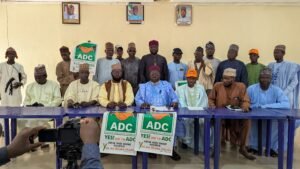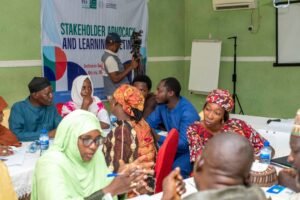
Yobe trains personnel to deepen health reforms through 2026 operational plan
Yobe Ministry of Health and Social Welfare has commenced cascading the National Health Sector Reform agenda across the state, with a focus on deepening implementation capacity ahead of Nigeria’s 2026 Annual Operational Plan (AOP).
Dr Babagana Abba, the Sector-Wide Approach (SWAp) Desk Officer made this known at a four-day Leadership, Health System Strengthening and Health Planning Capacity Development Workshop on Monday in Damaturu.
He said the training aimed at strengthen programme-level execution of Nigeria’s health priorities through the National Health Sector Renewal Initiative.
“This training focuses on the new reforms introduced by the Federal Government under the National Health Sector Renewal Initiative through a Sector-Wide Approach.
“It targets programme officers and managers—those directly implementing programmes at state, LGA and community levels,” he said.
According to Abba, while similar workshops were previously conducted for senior policymakers, the present effort cascades technical knowledge and planning skills to frontline health managers responsible for daily execution.
He noted that the workshop was essential to improve coherence, data use, and alignment of interventions with national and sub-national health priorities.
He explained that over 150 programme managers had been trained at the national level, and the ongoing exercise in Yobe was part of a nationwide cascade expected to hold across the 36 states and FCT.
“States such as Enugu and the FCT have already begun cascading these sessions. We expect full participation over the next four days, with over 70 programme managers and development partners attending,” Abba added.
He charged participants to engage actively and ensure knowledge gained is transmitted to their respective units, departments and agencies.
“The essence is that, at the time of developing the 2026 AOP, every health worker—whether at state or community level—is informed, included and aligned with national objectives,” he said.
Speaking at the event, Prof. Muhammad Pate, the Coordinating Minister for Health and Social Welfare who addressed participants virtually said the 2026 AOP was critical for testing the full-scale implementation of flagship health sector reforms.
“We are at a critical moment where we must stop doing things the same way. The 2026 plan offers us an opportunity to demonstrate the effectiveness of the reforms we have committed to as a country,” Pate said.
Pate, represented his Technical Adviser, Dr Isa Bukar, acknowledged that while reforms take time, the health sector must show progress in 2026, which precedes the general elections in 2027 when political attention may shift from development priorities.
Pate explained that the current push for state-led and data-driven planning stems from lessons learned during the 2025 AOP, which for the first time saw nationwide collaboration and alignment.
He stated that this year’s focus would be on rational, realistic, and comprehensive plans that were well integrated into budget cycles and reflect the needs of the people.
“To achieve this, we must close technical capacity gaps, strengthen data systems, and empower programme officers with skills in systems thinking, data interpretation and evidence-based planning,” the minister added.
Dr Musa Matazu, a representative of the Bill and Melinda Gates Foundation and Aliko Dangote Foundation, described the training as a first-of-its-kind intervention that strategically links data use, planning, and measurable outcomes.
“This is the first time we are having such a targeted training focusing on health systems strengthening, problem-solving, and result-oriented planning.
“Our resources are limited; without planning that is linked to results, impact is impossible,” he said.
Matazu noted that many health managers often misunderstand the scope of health systems, limiting it to recruitment and supplies.
He clarified that the health system comprises governance, human resources, commodities, demand generation, monitoring and evaluation, and supportive supervision.
“Yobe has already demonstrated strong collaboration with partners through resource mobilisation and shared goals. This effort will enable states to deliver more than their budgets can achieve,” he said.


